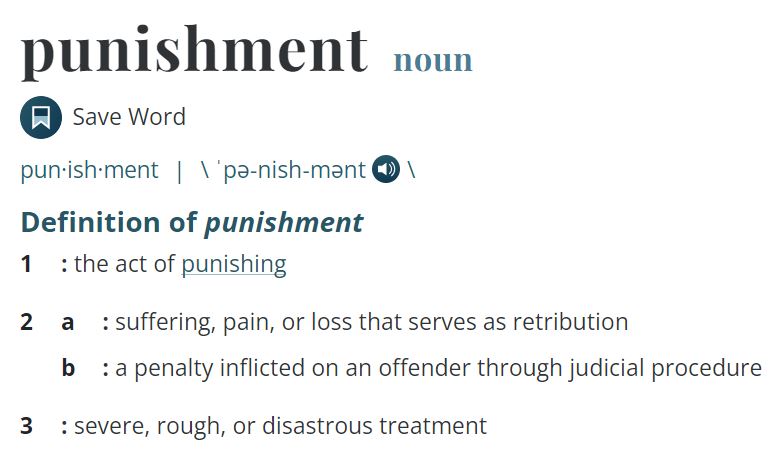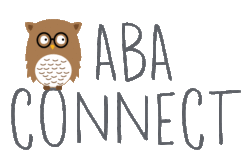The word “punishment” in the field of Applied Behavior Analysis (ABA) is defined in a different way than it is in the English language and is used much differently. In the Merriam Webster dictionary, punishment is defined as “suffering, pain, or loss that serves as retribution.”

In ABA, however, the word “punishment” is defined as the event that “occurs when stimulus change immediately follows a response and decreases the future frequency of that type of behavior in similar conditions (Cooper, Heron, Heward, 2007 p. 702). Furthermore, “negative punishment” is defined as what happens when “a response behavior is followed immediately by the removal of a stimulus (or a decrease in the intensity of the stimulus), that decreases the future frequency of similar responses under similar conditions”, (Cooper, Heron, Heward, 2007 p. 700). “Positive punishment” is defined as when “a behavior is followed immediately by the presentation of a stimulus that decreases the future frequency of the behavior.” (Cooper, Heron, Heward, 2007 p. 701).
Importantly, the idea of “punishment” in ABA is the consideration if the consequence that was applied had the effect of decreasing the target behavior. Anything that is applied as a consequence that diminishes a behavior, in ABA, is a “punishment.” If the consequence is additive, meaning, we’ve added some sort of stimulus to the environment, then it is a positive punishment. If the consequence removes something from the environment, then it is a negative punishment.
For an example, in ABA, if a child who excessively plays video games has the rule that “before playing video games, you must first do a chore from the chore list.” In this hypothetical case, if that rule causes the behavior of playing video games to decrease in frequency, then we would say that the rule is a punishment to the video game playing behavior.
Another example, if a parent decides that when kids voices become so loud that they wake up the sleepy baby, then the TV is turned off and kids asked to go outside, this would be a negative punishment procedure, if it reduces the future occurrence of noisy voices during baby’s naptime. If it doesn’t change the behavior of noisy voices, then it is not a punishment but simply a consequence that yielded no change in behavior. AND, if increases the future occurrence of noisy voices during naptime, then turning the TV off and asking kids to go outside, would actually serve as a reinforcement.
It is important to note that Board Certified Behavior Analysts answer to the Behavior Analysts Certification Board (BACB) code of ethics that prohibits any use of “corporal punishment.” You can read the code of ethics in full here.
Before any ABA type punishment procedure is ever considered, behavior analysts are required to perform multiple attempts at using positive reinforcement before considering a punishment behavior. Punishment should only be used as a last resort effort when all positive reinforcement has been exhausted.


